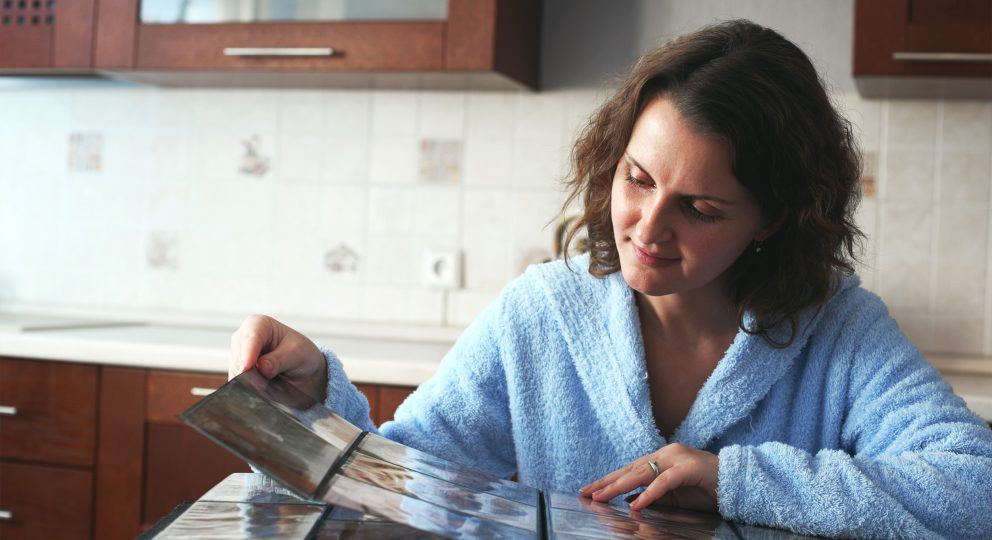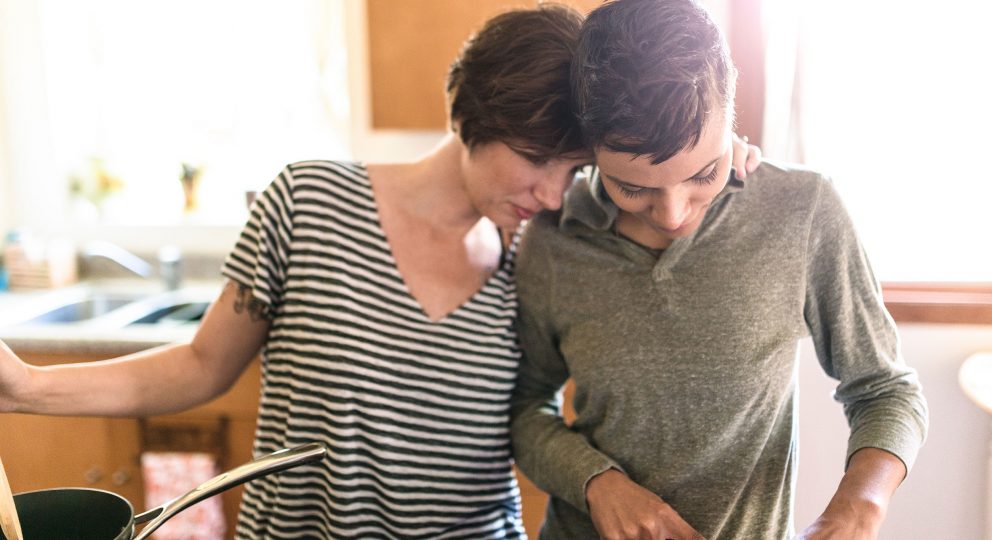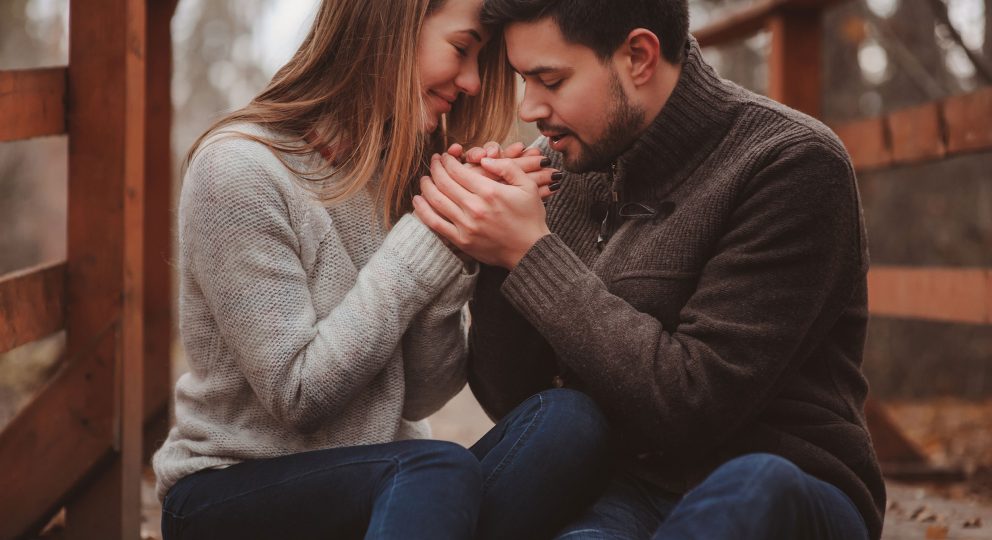Do you struggle with insecurity in relationships? Perhaps you love the chase, but can’t commit. Or you’re attracted only to those who are already “taken”? Maybe, like the younger me, you can’t relax in love, always anxious; however much reassurance you get it’s not enough. You live in fear. Of loss. Abandonment. And yet you also want more space.
When it comes to love, lust, and relationships, there are a thousand different ways to become stuck — like going for the wrong person or falling too fast, becoming codependent and “losing yourself” or just avoiding the whole gnarly business altogether and taking no risks whatsoever.
What’s less easy is getting unstuck. Unraveling knots is hard, and choosing different ways to relate can feel terrifying when you are used to self-protection. If you want to make healthier, more self-assured choices in relationships then you’ll need courage, faith, and willingness.
Look for patterns
Firstly you’ll need to be open to introspection, starting with identifying your patterns in relationships, and then beginning to ask why: why might I be behaving in this way? What is my motivation? What’s the fear? And where might it come from? When did I first become aware of it?
The crucial word here is attachment, defined by John Bowlby, founder of Attachment Theory as a “deep and enduring emotional bond that connects one person to another across time and space.” According to attachment theory, we each have our own preferred “attachment style,” usually the result of childhood — more specifically, how our caregivers related to us when we were young, and what we learnt about independence, dependence, receiving and giving love/support/affection.
The important thing to remember here is that attachment, and in particular our early attachment figures, can affect who we choose to be our sexual or romantic partners in the future. As the brilliant psychotherapist and relationships expert, Esther Perel has been known to say: “Tell me how you were loved and I will tell you how you make love.” By “make love,” I think she means how you do love — how you approach closeness, intimacy, dating, and romance.
What is your attachment style?
There are more layers and complexities to contemporary attachment theory, but for the moment, let’s just say there are four main attachment styles — secure, insecure-avoidant, insecure-anxious and disorganized. Those who have a secure attachment style will tend to find relationships — intimacy, commitment, and connection — a whole lot easier and more straightforward than others. These lucky ones learnt early on, thanks to parenting that (whilst it might not have been perfect) was good enough, that it’s safe to rely on people. They also learnt to tolerate disappointment without collapsing — that let down doesn’t have to lead to shut down.
Those with insecure-avoidant attachment styles have usually experienced either 1) parents who were excessively dismissive of their feelings (thus, they learnt to shut-down their feelings and find it hard to connect or show themselves), or 2) parents who were excessively engulfing (not allowing them enough personal or emotional space, so that they became fearful about ever allowing anyone close again lest they should be engulfed again).
Those with insecure anxious attachment styles (*waves*) usually had unreliable parents — loving, supportive, and available one minute and unavailable and even threatening the next – and so they never internalised enough security to go out in the world feeling really solid in themselves. These types find it very hard to trust others (and themselves) in adult relationships — ouch — and they can be pretty dramatic about stuff too because chances are, that ambivalent parental support meant they also didn’t learn how to self-soothe.
Both the avoidant and anxious type have a deep-seated fear of abandonment but the avoidant person tries to quell that fear by pushing people away/not getting close and the anxious person attempts to do so by being clinging or demanding. Those are crude and generalised characteristics, I should add.
For those with insecure-disorganised attachment styles, life is even more confusing: parents were so unreliable as to be abusive or perhaps completely shutdown/depressed; the child was at times frightened by the person who should have been taking care of them and so it’s all incredibly confusing. Love, as learnt during childhood, is in this instance confused with abuse, neglect or severe abandonment. These types often end up in abusive dynamics, without consciously knowing how they got there.
Phew. That’s quite a lot. If you’re still reading, and particularly if you haven’t heard this stuff before, just breathe. It can be easy to feel overwhelmed or despondent if you see yourself in any of the insecure types. Thankfully, expert opinion (and my experience) suggests that insecure attachment patterns can be improved or even healed by the existence of nourishing long-term relationships, be those with friends, lovers, spouses, therapists and even, sometimes, pets.
How does attachment style play out
Let’s put this all in context with an example. I’m going to use one of my closest friends someone with an insecure attachment style best described as anxious-avoidant. (Oh yes, I forgot to mention that little gem: those with anxious attachment can also be avoidant, they swing from one extreme to the other, but rarely feel secure.) This kind, funny, intelligent and outgoing woman has been the “other woman” four times in three years and admits that she is drawn to the semi-unavailable lover in a way that can feel unhealthy.
Like many of us, my friend adores the beginning of things — that first kiss, that dopamine hit when her phone pings with a titillating message, the swift bouncing of emails back and forth as the intrigue thickens and possibility grows.
It is enthralling, sometimes obsessive, and some might say addictive. At some point during the courtship, it tips over into suffering as my friend finds herself in a familiar position of needing reassurance from her lover whom she’s convinced is withdrawing. Either she gets it and it doesn’t satiate her, or worse still, she doesn’t get reassurance, probably because she’s chosen someone who can’t give it. That’s when that old, agonising feeling of longing sets in: why doesn’t he want me like I want him? I feel forgotten — it’s been six hours, why hasn’t he replied, where has he gone? Maybe if I message again, if I show more interest, offer more support, he’ll get back to me.
You might suggest this is the inevitable consequence for any person who gets involved with someone married or, if you’re really critical, you might call it karma. To judge in this way, however, is to miss the bigger picture. Instead, we should be curious about the roots or motivation behind any self-defeating pattern. When we learn about my friend’s history, things start to make more sense and we are (I hope) able to access more compassion. Her father was thirty years older than her mother. The three never lived together, although she bonded with him during weekends and holidays. In terms of my friend’s attachment style, which develops most strongly during early childhood, what she experienced was a father who was already tantalisingly inconsistent — both “there and then-not-there.” Then, when she was five, he left completely, without so much as a proper goodbye.
To make matters worse, my friend’s mother, although I’m sure she did her best, wasn’t able to help her daughter with the loss of her father because she, too, was heartbroken. Nothing got worked through or resolved. My friend learned that when she was really devastated nobody helped, and so became skilled at shutting down difficult feelings and just ‘getting on with it’.
Final thoughts
There is of course more to this story and I’ve shared only what I know and all from my friend’s (or my) point of view. Still, it’s hard not to feel more compassion for my friend now that we know some of her backstory and understand her a bit better. It’s also hard to imagine that those younger experiences of abandonment and feeling unsupported haven’t shaped her approach to future relationships both in terms of what she gives and what she expects she deserves.
It is my experience, as both a therapist and someone who has spent much of her romantic life afflicted by an anxious attachment style, that we attract partners who are about as emotionally available as we are. The only way we can begin to have more fulfilling intimate relationships, therefore, isn’t by trying to change our partners (who we pick will change, rather, as we do) but by focusing on ourselves; learning to value and trust ourselves; working on achieving “interdependence” where we can reach out to others for help but also nurture ourselves.










